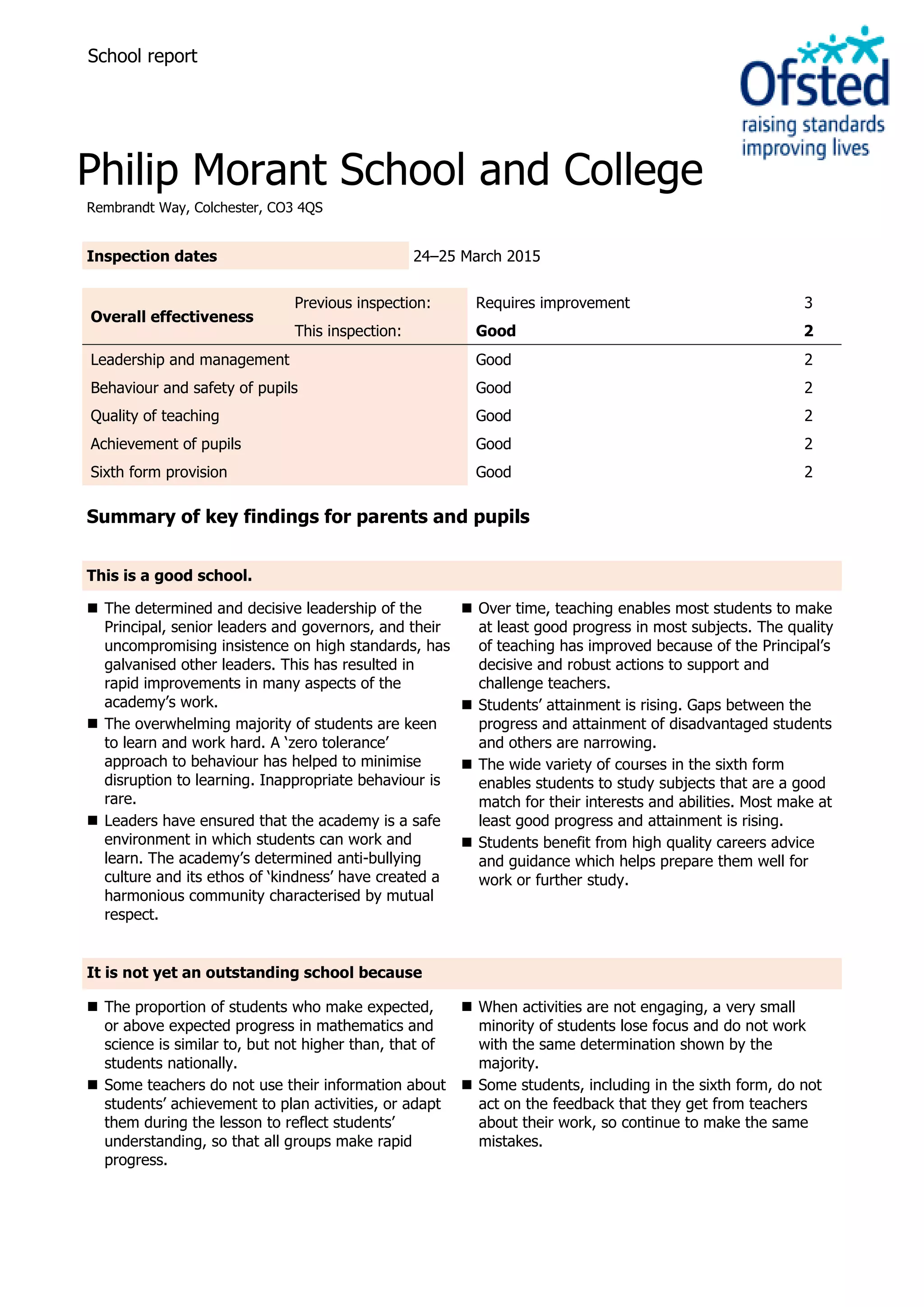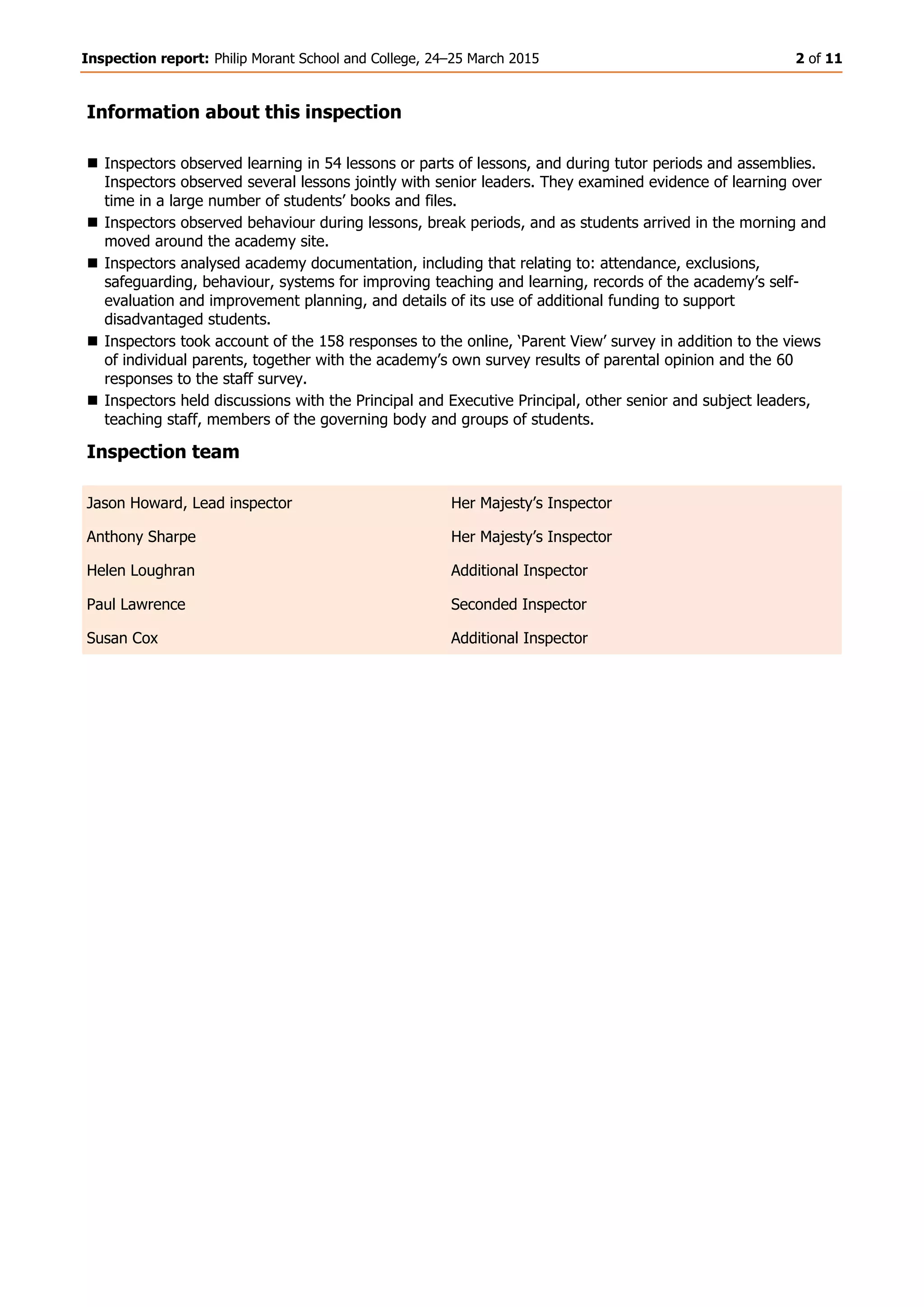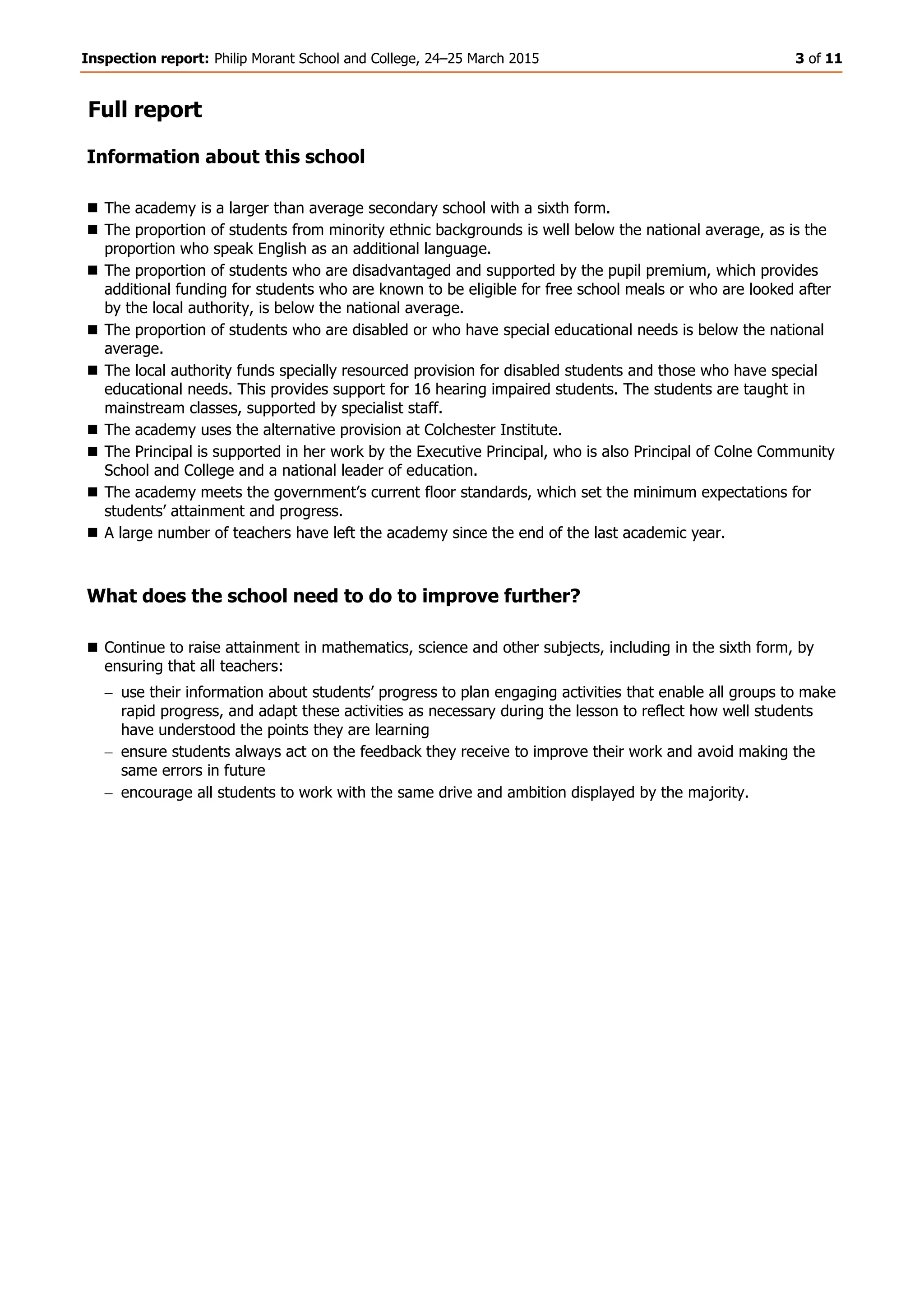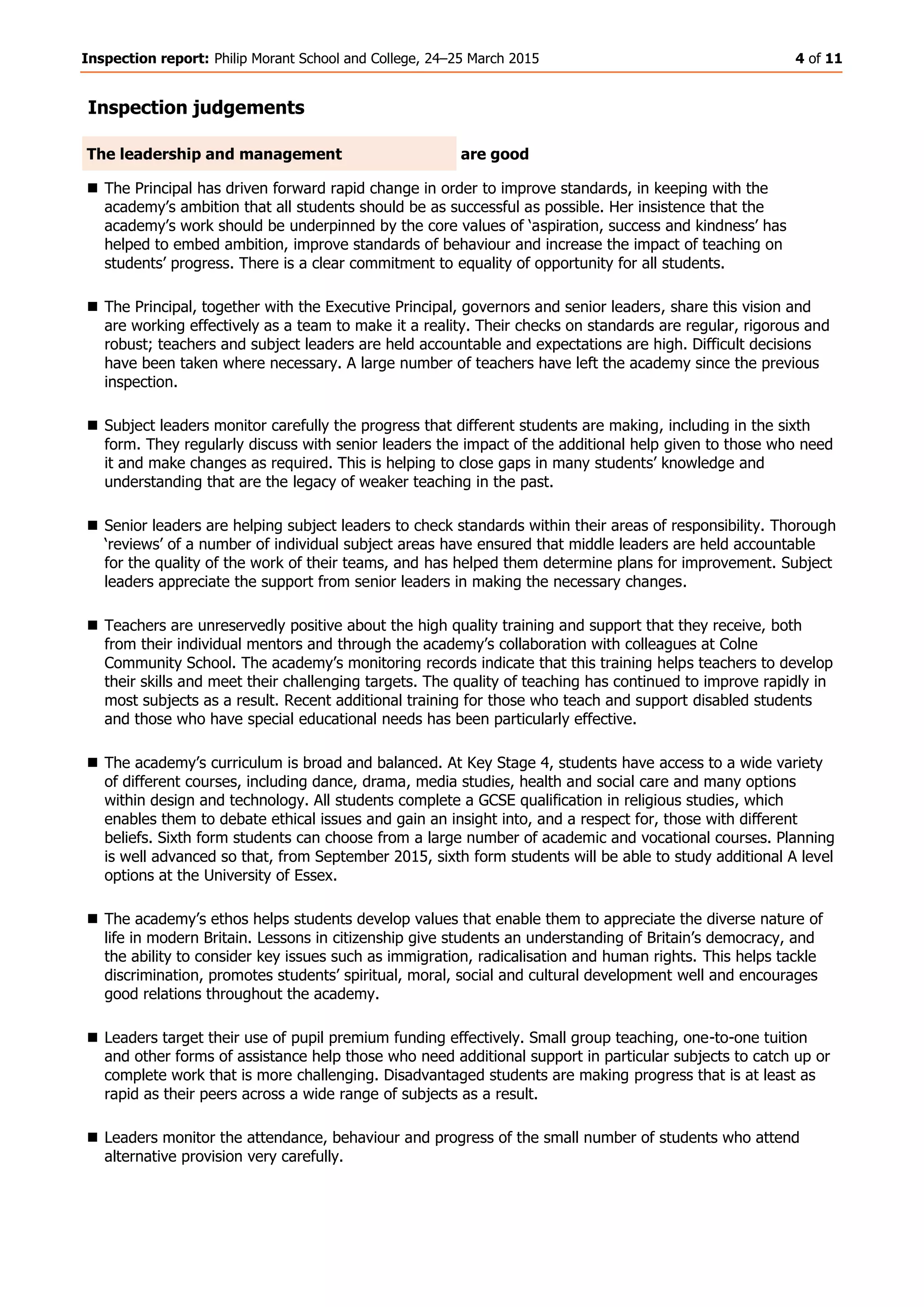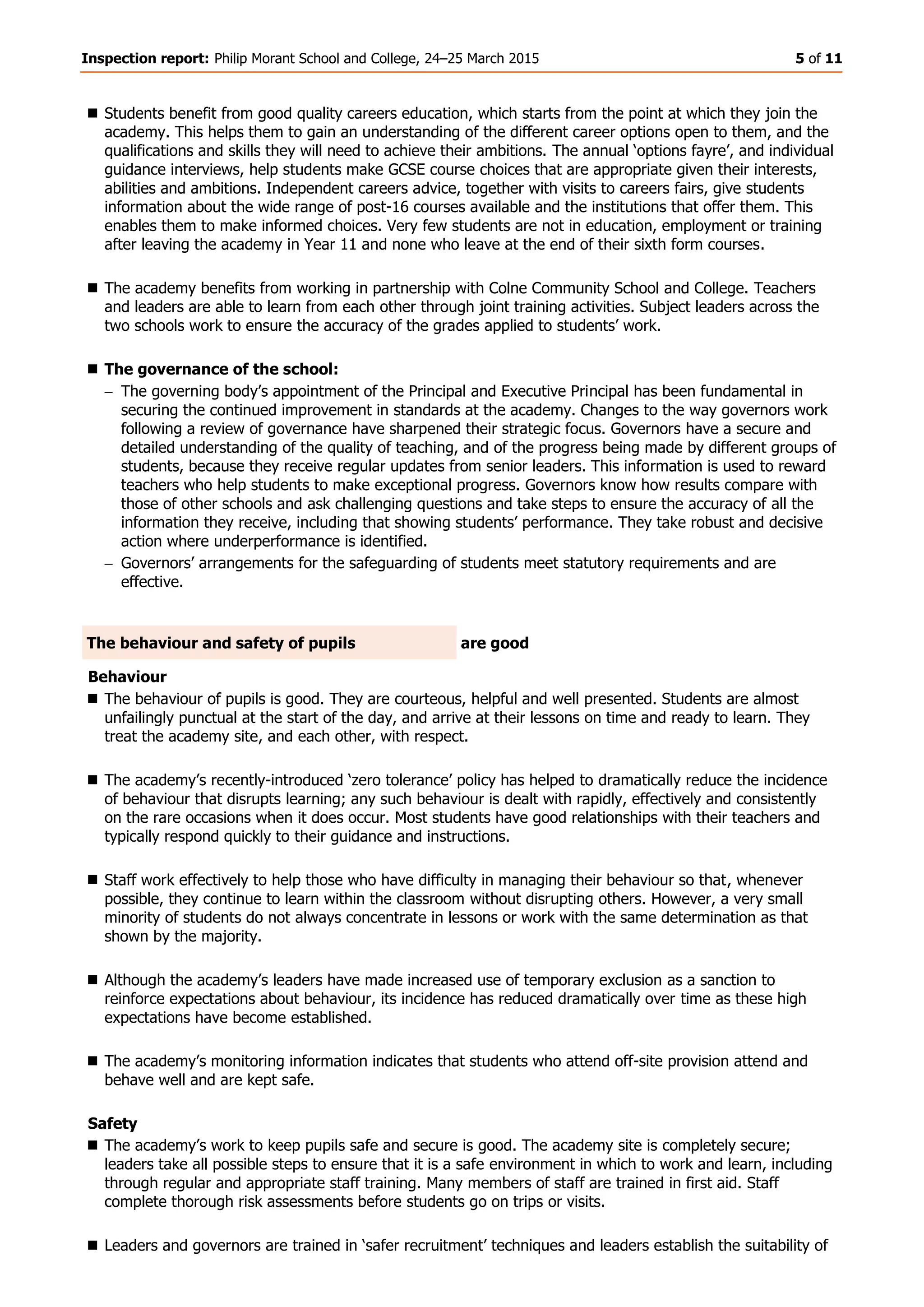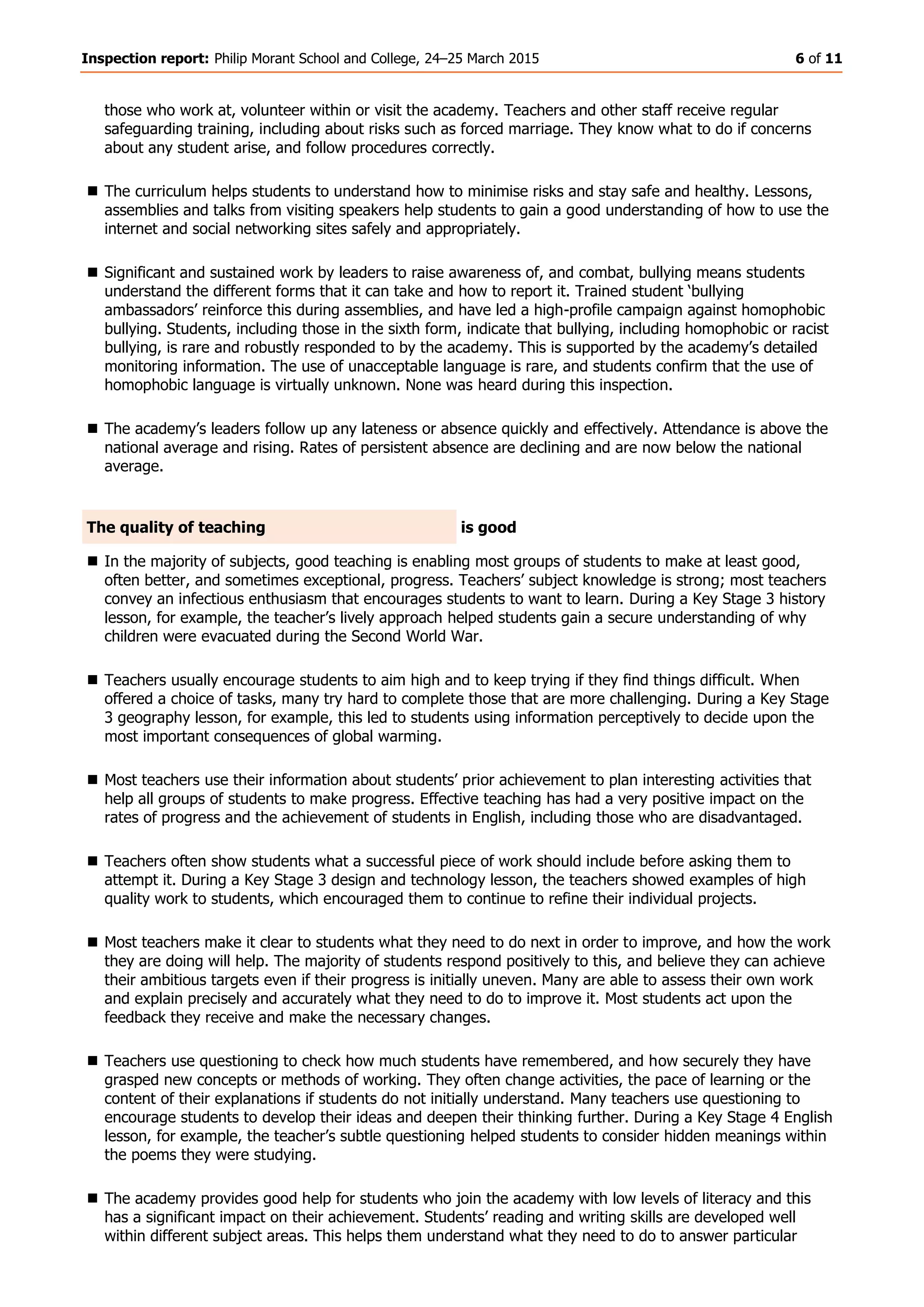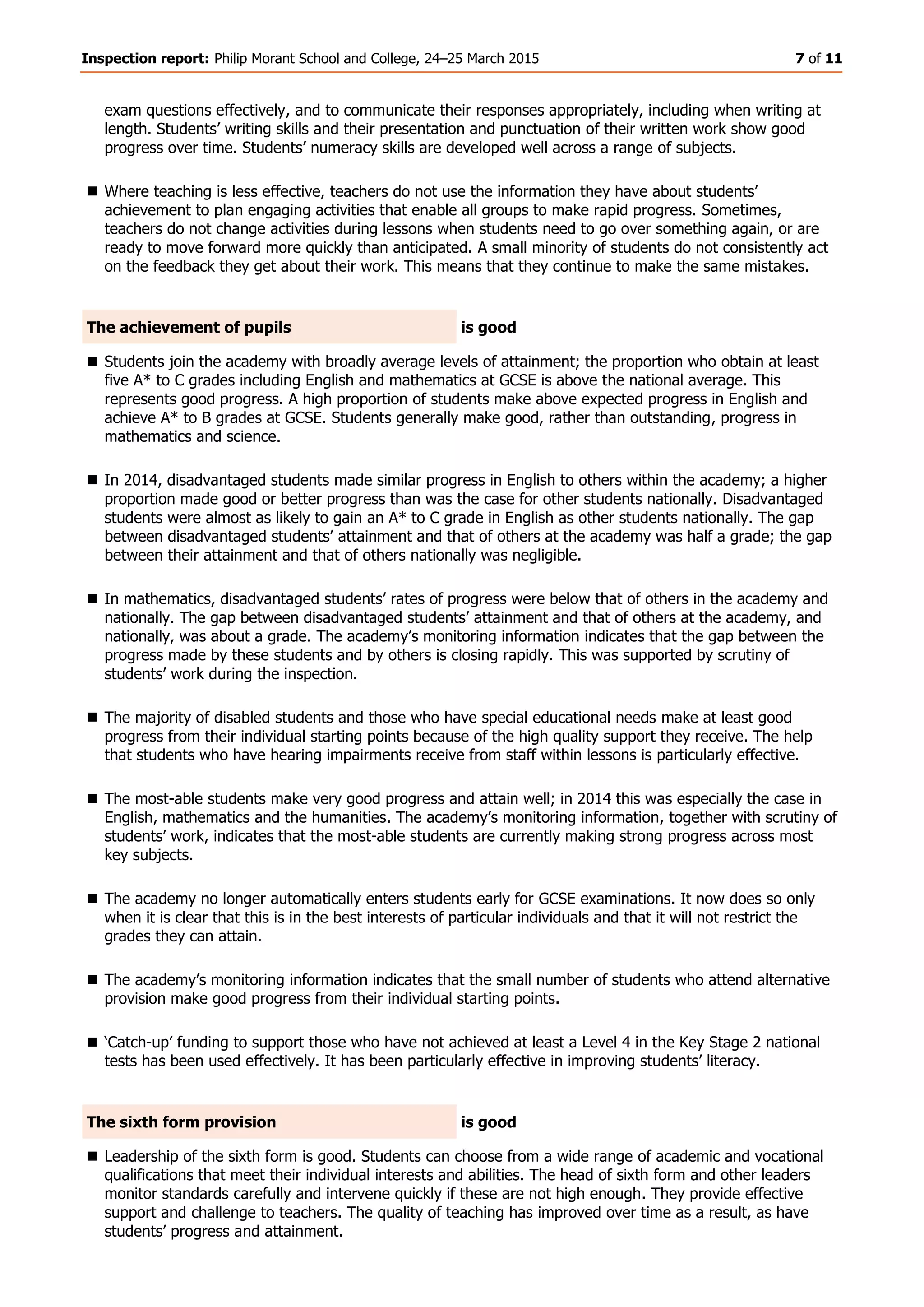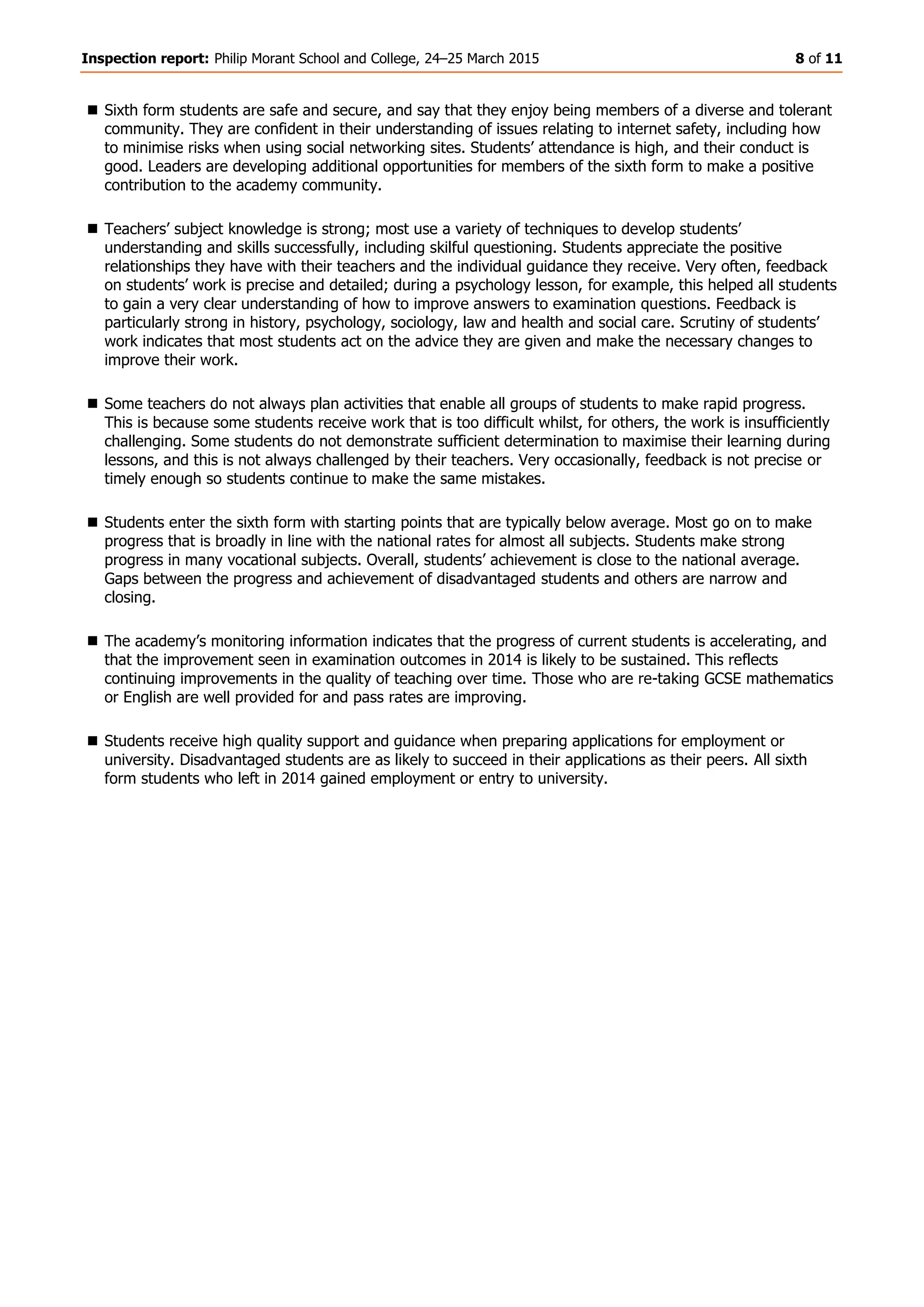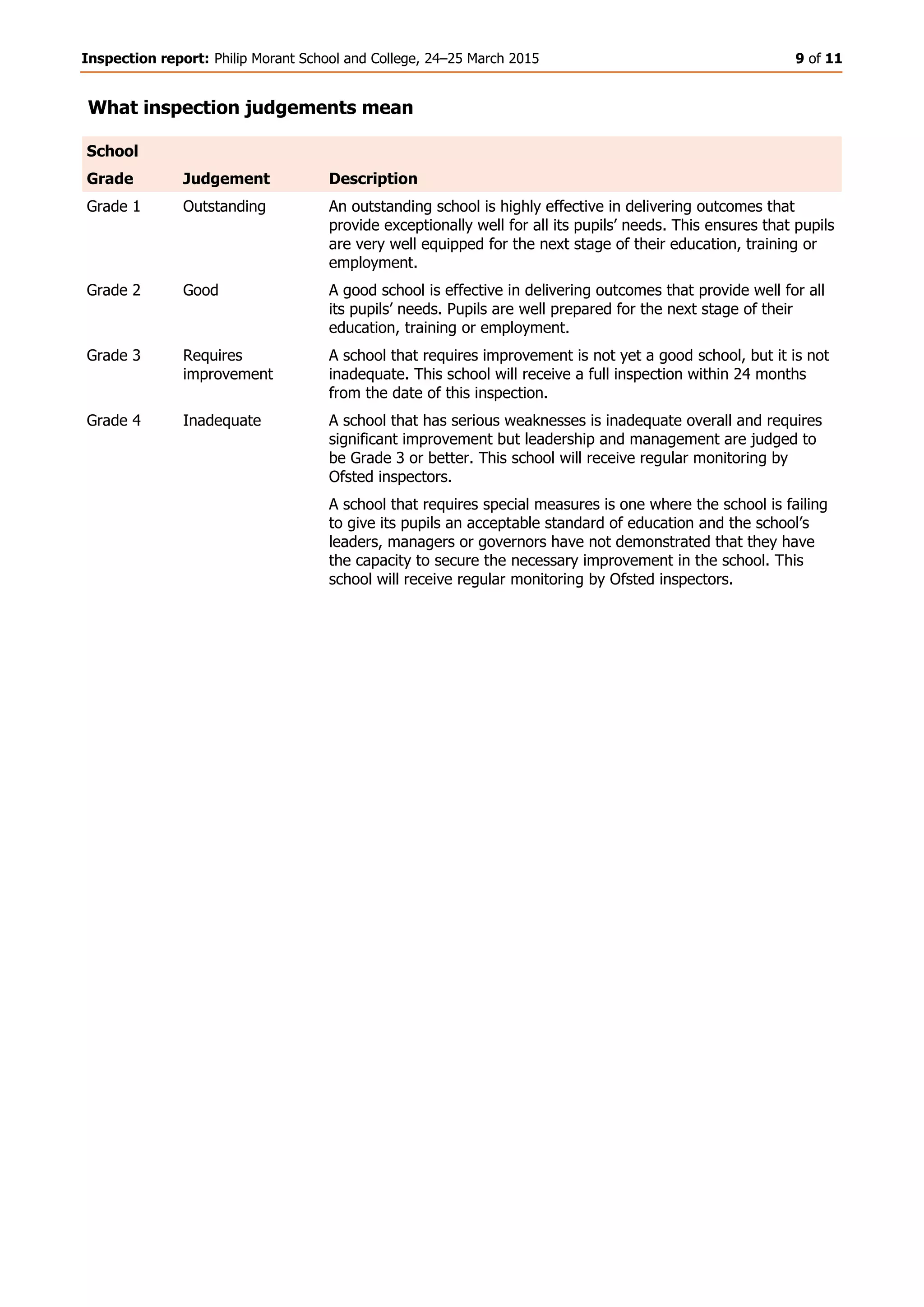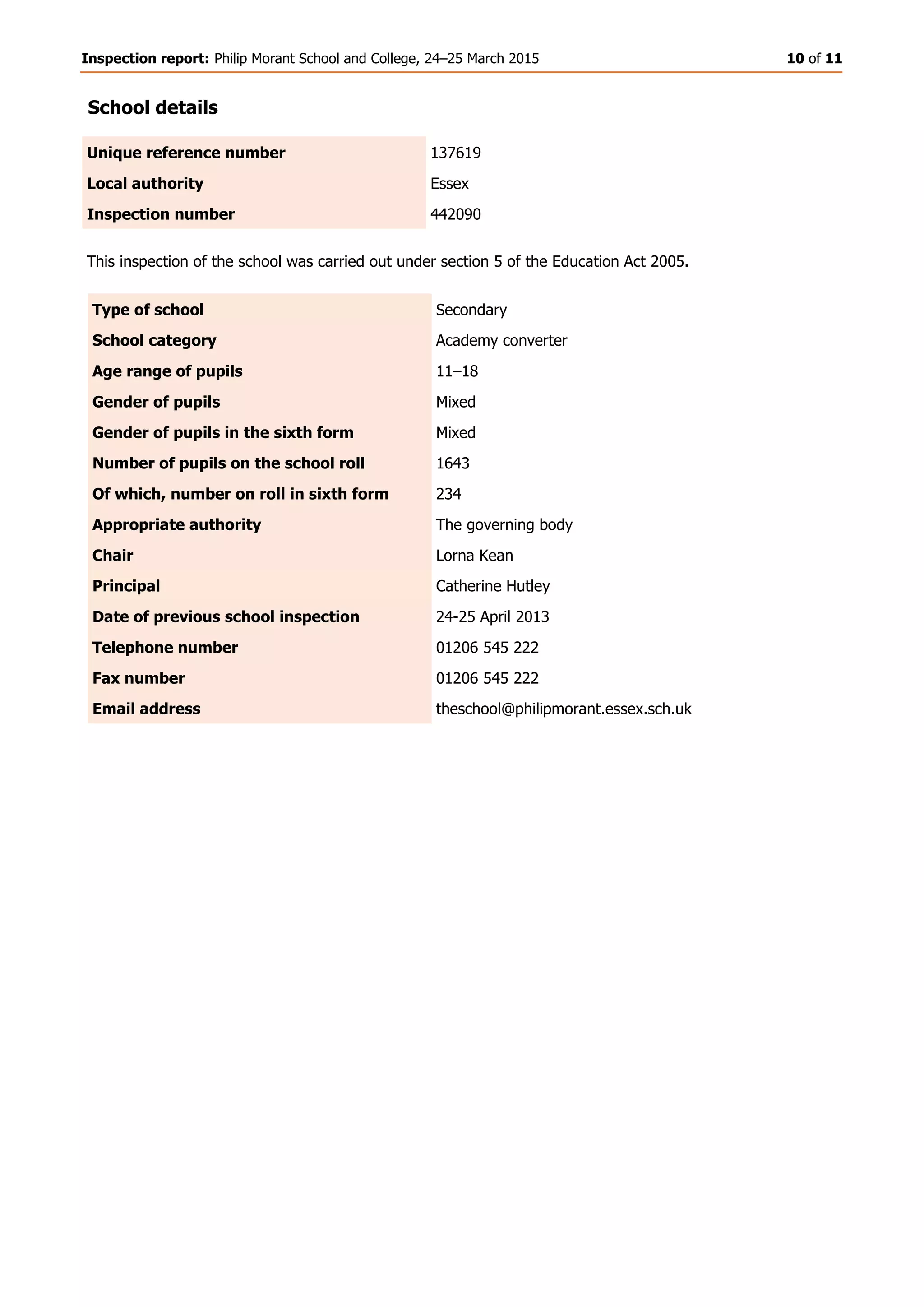This inspection report summarizes the findings of an inspection of Philip Morant School and College. The inspection judged the school to be good overall, finding that leadership, behaviour, teaching quality, and pupil achievement were also good. Some areas for further improvement were identified, such as increasing progress in maths and science, and ensuring all teachers provide targeted feedback and activities to support all pupils' learning. The report provides details of the inspection process and evaluates various aspects of the school's performance.
